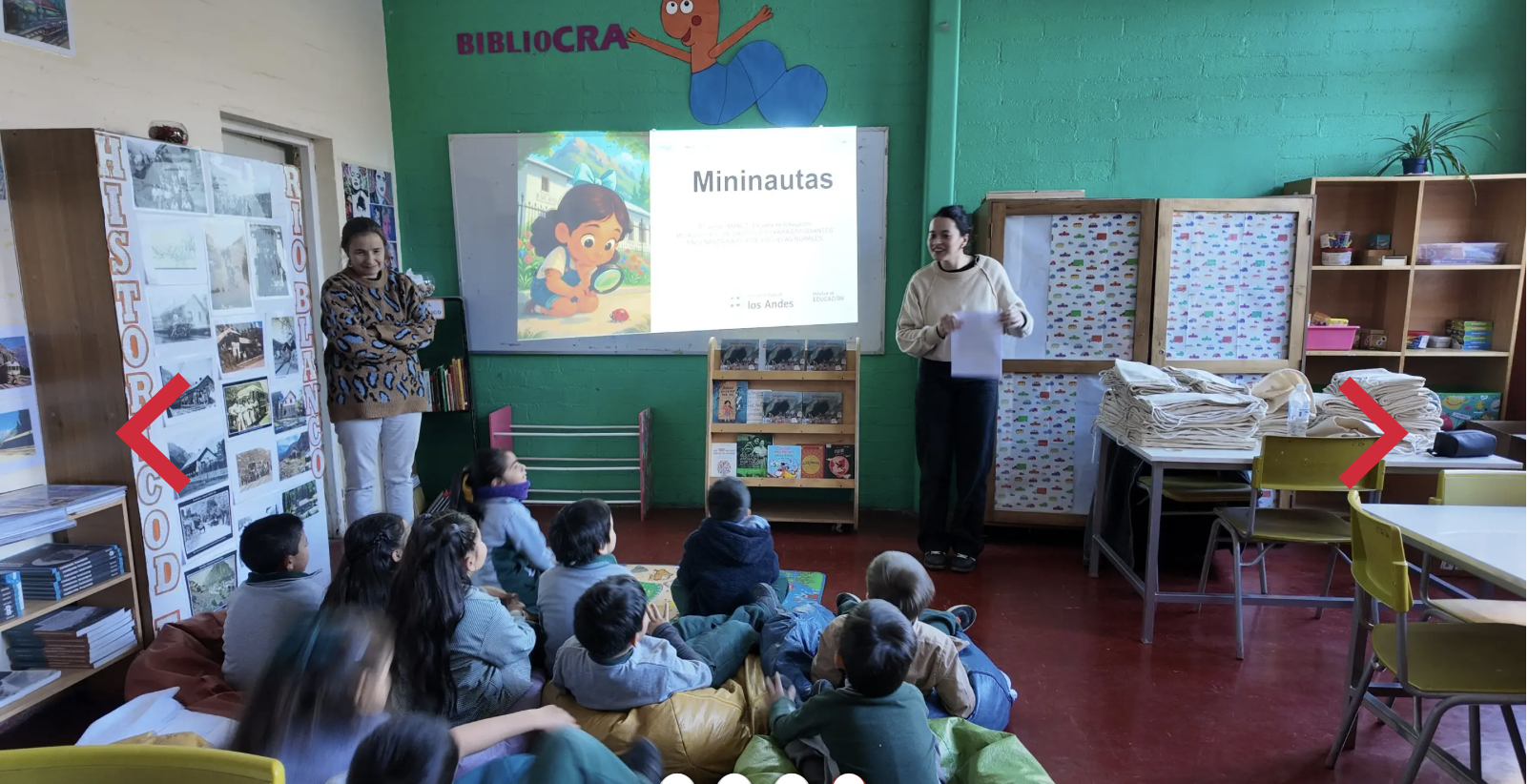The project to bring science to rural schools began at IMPACT with the creation of an accessible and hands-on microscope that seeks to link low-income students with science and technology.
With the delivery of more than 100 educational kits to the Rio Blanco School, in the Valparaiso Region, the first pilot of the Mininautas: Exploring the Microworld, a collaborative project between the Center for Interventional Precision Medicine and Advanced Cellular Therapy (IMPACT) and the Universidad de los Andes School of Education was launched to bring science closer to students.
The project, titled Mininautas project was born in 2022 at IMPACT with the creation of an accessible and educational microscope: a functional prototype that brought science closer to children in rural contexts through collaboration with an industrial designer. To promote its use in school environments, the project incorporated academics and students from the School of Education , who developed a teaching guide to foster scientific thinking in multilevel classrooms.
The activity took place on Wednesday, June 11th, and brought together students from pre-kindergarten to fifth grade, who were able to explore the invisible world that is not visible to with the naked eye thanks to a low-cost microscope designed especially for them. Each child received a kit with a "Mininauta" microscope and two samples –one plant-based and one insect-based– which they were able to observe and manipulate in the classroom.
The event was led by the academic Trinidad Sanchez and Francisca Cobo, a student of Primary Education Pedagogy, who conducted level-appropriate classes. Additionally, the event featured Dr. Francesca Velardefrom the IMPACT Center, along with professionals Nicolas Georges e Isidora Torres, who served as scientific counterparts.

